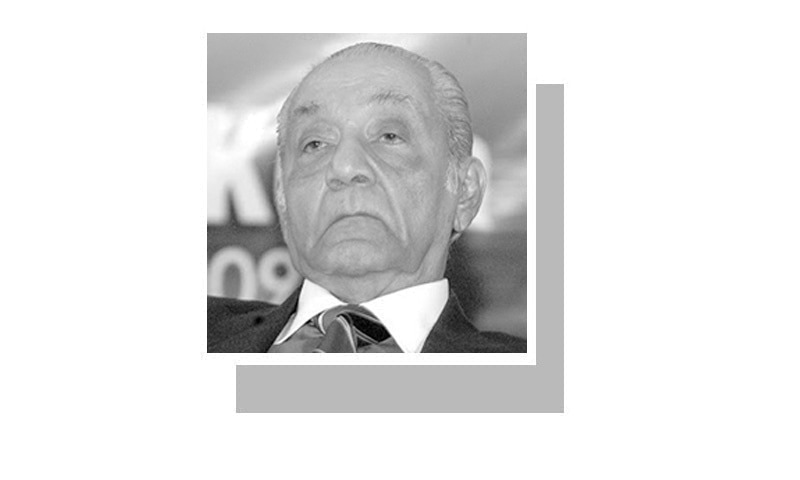Via AP news wire -
A Republican candidate for Congress in western New York said in a radio interview that U.S. Attorney General Merrick Garland “should be executed” for authorizing a search former President Donald Trump's home, before clarifying later in the show that he wasn't being serious.

© ASSOCIATED PRESSElection 2022 House Paladino
Buffalo-area businessman Carl Paladino made the comment in an interview with Breitbart News Saturday on Aug. 13. During the interview, Paladino was criticizing President Joe Biden for what he said was a lack of leadership and disengagement from government.
“So we have a couple of unelected people who are running our government, in an administration of people like Garland, who should be not only impeached, he probably should be executed,” Paladino said. “The guy is just lost. He’s a lost soul. He’s trying to get an image, and his image, his methodology is just terrible. To raid the home of a former president is just — people are scratching their heads and they’re saying, ‘What is wrong with this guy?’”
A short time later in the interview, host Matthew Boyle pressed Paladino about what he meant when he said that Garland should be executed.
“I’m just being facetious. The man should be removed from office,” Paladino said. “He shows his incompetence. He wants to get his face in front of the people and show he’s got some mettle to him, but his choice of issues and choice of methodology is very sad.”
A Justice Department spokesman did not immediately respond to a request for comment. The FBI is generally responsible for investigating threats made against the attorney general. Messages seeking comment were left with his campaign Thursday.
A Paladino spokesperson, Vish Burra, told The Buffalo News the candidate wasn't actually calling for Garland's death.
“The comment is clear: Carl does not think Garland should be executed and when you listen to the interview, when asked what he meant, he stated he was being facetious,” Burra said Wednesday.
Paladino, a millionaire real estate developer who was the party's candidate for governor of New York in 2010, is in a close primary fight with New York Republican State Committee Chairman Nick Langworthy. Paladino has been endorsed by U.S. Rep. Elise Stefanik.
The FBI and Justice Department have faced a barrage of violent threats in the days since agents searched Trump's Mar-a-Lago home as part of an investigation into the discovery of classified White House records.
A man, who had said on social media that federal agents should be killed “on sight,” died in a shootout with law enforcement officers in Ohio after trying to get inside the FBI's Cincinnati field office with a semiautomatic rifle.
Paladino has a long history of outrageous comments.
In June, he shared a Facebook post suggesting that a racist mass shooting in Buffalo was part of a conspiracy to take away people’s guns. The same month, he apologized for a comment he'd made in an interview in which he said Adolf Hitler was “the kind of leader we need today” because of his ability to rally crowds.
In 2016, Paladino joked to a newspaper that he hoped then-President Barack Obama would die from mad cow disease and said Michelle Obama should “return to being a male" and be sent to live with a gorilla in a cave.
The following year, he was removed from Buffalo’s school board for improperly discussing teacher contract negotiations, although he contended the comments about the Obamas were the real reason for his removal.
During his run for governor, he was criticized for forwarding emails to friends containing racist jokes and pornography.
Donald Trump booster Carl Paladino, now a New York congressional candidate, is violating federal law by not disclosing his personal finances
GOP congressional candidate Carl Paladino hasn't filed a mandatory personal financial disclosure.
Paladino is wealthy Western New York real estate developer who's routinely courted controversy.
Early voting for the NY-23 primary election began on August 13. Election Day is August 23.
Carl Paladino, a Donald Trump-boosting Republican running to represent New York's 23rd Congressional District, is violating a federal conflict-of-interest and transparency law by not disclosing details about his own finances, an Insider review of congressional financial filings indicates.
Paladino — endorsed by third-ranking House Republican Rep. Elise Stefanik of New York — is running against the chair of the New York Republican Party, Nick Langworthy, in the district's open GOP primary. His late disclosure means that voters cannot review details about the ostensibly wealthy real estate developer's income, investments, employment, and debts.
A congressional candidate could face an investigation or fine if he or she "knowingly and willfully falsifies a statement or fails to file a statement" in accordance with US House guidance, although officials rarely pursue such investigations.
Paladino's campaign did not respond to Insider's repeated requests for comment.
The campaign did, however, tell the Buffalo News earlier this month that Paladino hasn't filed his financial disclosures because the Clerk of the House of Representatives "failed to supply this campaign with login credentials." The campaign further noted that the clerk extended the filing period and that the disclosure was "in the process of being filed."
Records maintained by the Clerk of the House of Representatives do not, however, indicate Paladino officially requested an extension or received one. Federal law, meanwhile, requires all candidates to submit their personal financial disclosures within 30 days of an election no matter what.
And in the event a candidate cannot or does not want to use Congress' electronic filing system, they have the option to mail paper disclosures to the US House — there are also no congressional records of Paladino doing so.
Now with less than a week until Election Day, Paladino has still yet to file his disclosure and early voting has already begun — voters were allowed to begin casting their ballots on August 13.
'Suspicious'
Dylan Hedtler-Gaudette, the government affairs manager at the nonpartisan Project on Government Oversight, told Insider that it's "unfair to the potential future constituents and the voters to not have that information before they're casting their vote.
"It's a little bit suspicious," Hedtler-Gaudette added, "that the one thing that could potentially contain some interesting information is the one thing that they seem to not be able to do."
The House Ethics Committee, the party that would be tasked with investigating Paladino's violation, frequently overlooks STOCK Act infractions.
The committee is even more handicapped as of late after ranking member Rep. Jackie Walorski died in a car accident on August 3. The committee typically does not vote without having a full committee of 10 members.
Langworthy, Paladino's opponent, submitted his 2021 annual personal financial disclosure in July. The disclosure shows that he invests in several mutual funds and the SPDR S&P 500.
Candidates running for a House office are required to file financial disclosures with the House after raising or spending $5,000 in cash, according to federal law and guidelines from the House Ethics Committee. Paladino crossed that threshold weeks ago.
Paladino formally declared his run for office in June 2022, shortly after Republican Rep. Chris Jacobs announced he would not seek re-election.
Paladino's turbulent career in politics includes a 2010 run for New York state governor that he badly lost in the general election.
In 2016, while serving on the Buffalo School Board, he made sexist and racist remarks about then-first lady Michelle Obama. He later apologized. Fellow board members pressured him to resign, but he refused.
New York's education commissioner ultimately removed Paladino from office in 2017 for, as the New York Times reported at the time, revealing confidential information about collective bargaining negotiations with the city's teachers union.
Just this week, Paladino told Breitbart News that Attorney General Merrick Garland "should be executed" for green-lighting a search of Trump's Mar-a-Lago home in pursuit of government records — a comment Paladino later said was "facetious."
Paladino is primarily self-funding his congressional campaign. The chairman of a real estate development company, Paladino has loaned his campaign $1.5 million, or 99% of the campaign's total money raised.
Paladino is a long-time supporter of Trump, although Trump has not yet endorsed a candidate in New York's 23rd District — a decidedly red district that will almost certainly elect the winner of Paladino-Langworthy in November's general election.
A push to ban congressional stock trading
Members of Congress and congressional candidates — Republicans and Democrats alike — have routinely violated
Insider's "Conflicted Congress" project found 70 members of Congress in violation of the Stop Trading on Congressional Knowledge Act of 2012 with late or missing disclosures.
In the wake of the investigation, Congress has begun debating whether to ban lawmakers and their spouses from buying, selling, or holding individual stocks.
House Democrats have suggested they'll hold a vote on the issue in September, though a vote has yet to be scheduled.









